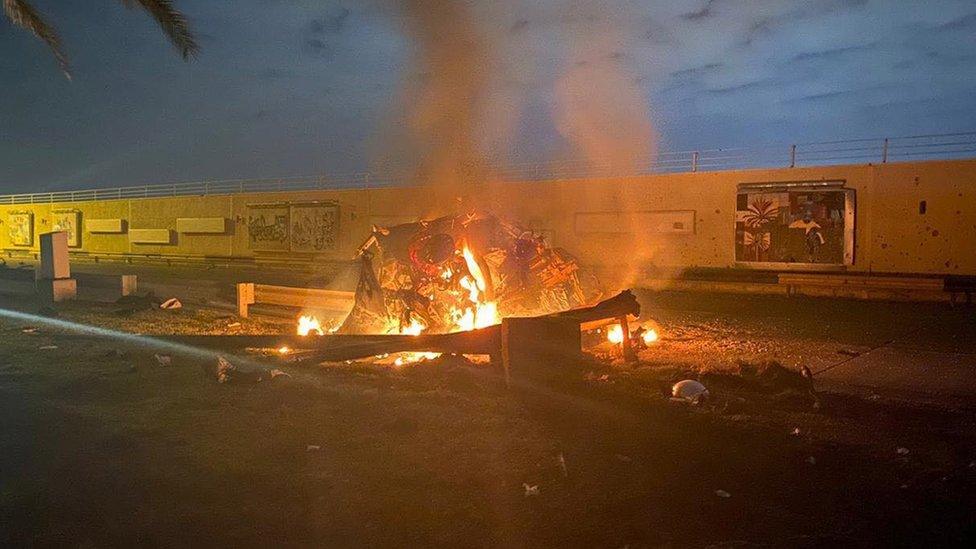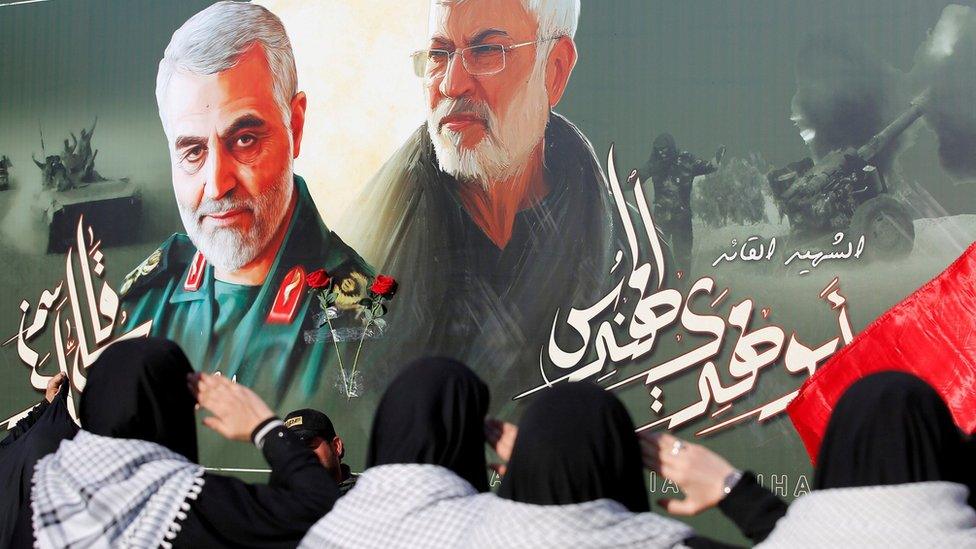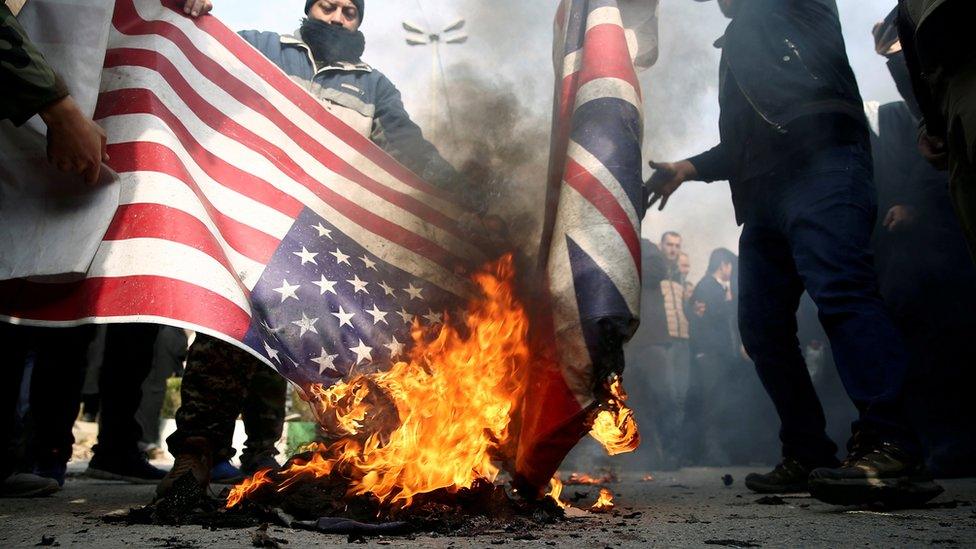Qasem Soleimani: US strike on Iran general was unlawful, UN expert says
- Published

A convoy carrying Qasem Soleimani was targeted by a US drone near Baghdad's airport
The US attack that killed top Iranian general Qasem Soleimani violated international law, a UN expert says.
Soleimani died along with nine other people in a drone strike near Baghdad airport in Iraq in January.
A report by the UN's special rapporteur on extrajudicial killings, Agnes Callamard, says the US had not provided sufficient evidence of an imminent threat to life to justify the attack.
The US state department accused her of "giving a pass to terrorists".
Last week, Iran issued arrest warrants for US President Donald Trump and 35 others on charges of murder and terrorism in connection with the killing.
Who was Qasem Soleimani?
He was seen as the most powerful figure in Iran after its supreme leader.
As commander of the Revolutionary Guards' overseas operations arm, the Quds Force, Soleimani was an architect of Iranian policy across the Middle East.
He was in charge of the Quds Force's clandestine missions and its provision of guidance, funding, weapons, intelligence, and logistical support to allied governments and armed groups, including Hezbollah, Hamas and Islamic Jihad.
Qasem Soleimani: Who was Iran's 'rock star' general?
Mr Trump described Soleimani as "the number-one terrorist anywhere in the world".
He alleged that under the general's leadership the Quds Force had "targeted, injured, and murdered hundreds of American civilians and servicemen" over the past 20 years, and that the general had orchestrated a rocket attack in Iraq in December that killed an American contractor.
How did Soleimani die?
The general arrived at Baghdad International Airport on a flight from Syria early on 3 January. He was leaving the airport with senior officials from Iraqi Shia militias backed by Iran when their convoy was hit by missiles fired by a US drone.
Among the people killed alongside Soleimani was Abu Mahdi al-Muhandis, deputy commander of Iraq's paramilitary Popular Mobilisation Forces, an umbrella grouping of Shia militias.

Iraqi militia commander Abu Mahdi al-Muhandis (R) was killed alongside Soleimani
Mr Trump said he ordered the strike "to stop a war" between the US and Iran.
"Soleimani was plotting imminent and sinister attacks on American diplomats and military personnel, but we caught him in the act and terminated him," he asserted.
Five days later, Iran fired ballistic missiles at two Iraqi military bases hosting US forces. No US troops died, but more than 100 suffered traumatic brain injuries.
What does the UN expert's report say?
Agnes Callamard presented her findings on Thursday to the UN Human Rights Council in Geneva.
Her report says the US had provided no evidence that showed Soleimani specifically was planning an imminent attack against US interests, external, particularly in Iraq, for which immediate action was necessary and would have been justified.
"Major General Soleimani was in charge of Iran military strategy, and actions, in Syria and Iraq. But absent an actual imminent threat to life, the course of action taken by the US was unlawful."

The killing of Gen Soleimani pushed the US and Iran to the brink of war
The drone strike therefore constituted an "arbitrary killing" for which the US is responsible under international human rights law, according to the report.
Ms Callamard also says Iran's retaliatory missile strikes were unlawful.
How has the US reacted?
"It takes a special kind of intellectual dishonesty to issue a report condemning the United States for acting in self-defence while whitewashing General Soleimani's notorious past as one of the world's deadliest terrorists," state department spokeswoman Morgan Ortagus said on Wednesday.
"This tendentious and tedious report undermines human rights by giving a pass to terrorists and it proves once again why America was right to leave" the UN Human Rights Council in 2018, she added.